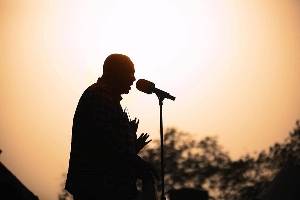 Former President John Dramani Mahama
Former President John Dramani Mahama
On February 24, 1966, Ghana, a beacon of African independence and a symbol of African unity under the charismatic leadership of Dr. Kwame Nkrumah, experienced a seismic shift in its political landscape.
A group of military and police officers, branding themselves as the National Liberation Council (NLC), successfully executed a coup d’état, overthrowing Nkrumah’s government. This event not only marked the end of Nkrumah’s presidency but also set Ghana on a tumultuous path, altering its developmental trajectory and impacting African politics.
Immediate Consequences
The immediate aftermath of the coup saw the dissolution of Nkrumah’s Convention People’s Party (CPP), the imposition of curfews, and the suspension of the constitution. The NLC justified its actions by accusing Nkrumah’s government of gross mismanagement, corruption, and the pursuit of personal power at the expense of national prosperity. Nkrumah, who was on a peace mission in China at the time, was forced into exile, eventually taking refuge in Guinea.
Economic and Social Impact
Economically, the coup was a response to worsening conditions, including high inflation, unemployment, and debt, which critics attributed to Nkrumah’s ambitious industrialization projects and misallocation of resources.
The NLC’s takeover led to a realignment of Ghana’s economic policies, including austerity measures and a shift towards a more capitalist-oriented economy, which saw the stabilization of the economy in the short term. However, these changes also led to a reduction in social services and a rollback of some of Nkrumah’s social policies.
Political Repercussions
Politically, the coup set a precedent for military intervention in Ghanaian politics, leading to a period of instability characterized by several coups over the next decades. It dismantled the one-party state system, eventually leading to the restoration of multiparty democracy in 1969.
However, the cycle of military interventions would continue until the Fourth Republic was established in 1992. Impact on Pan-Africanism Nkrumah was a leading figure in the Pan-African movement, advocating for the unity and solidarity of African countries against colonialism and neocolonialism.
His overthrow was a significant blow to the movement, dampening the momentum for African unity and independence. While the dream of Pan-Africanism lived on, the coup illustrated the challenges of political instability and external influences in achieving these ideals.
International Relations
The coup had significant implications for Ghana’s foreign relations. Nkrumah’s non-aligned stance and his close ties with the Soviet Union and China during the Cold War made him unpopular with Western powers, particularly the United States.
The change in government led to a realignment of Ghana’s foreign policy towards the West, resulting in increased Western aid and support for the new regime.
The February 24, 1966, coup in Ghana was a watershed moment in the country’s history, with far-reaching consequences that extended beyond its borders. While it addressed immediate grievances against Nkrumah’s rule, it also ushered in a period of political instability and economic uncertainty.
The coup d’état not only reshaped Ghana’s political landscape but also had a profound impact on the trajectory of the Pan-African movement and the dynamics of Cold War geopolitics in Africa.
As Ghana continues to navigate its path toward sustainable development and democracy, the lessons of 1966 remain a poignant reminder of the complexities of governance and the enduring quest for unity and progress in Africa.
Building the Ghana we want together!